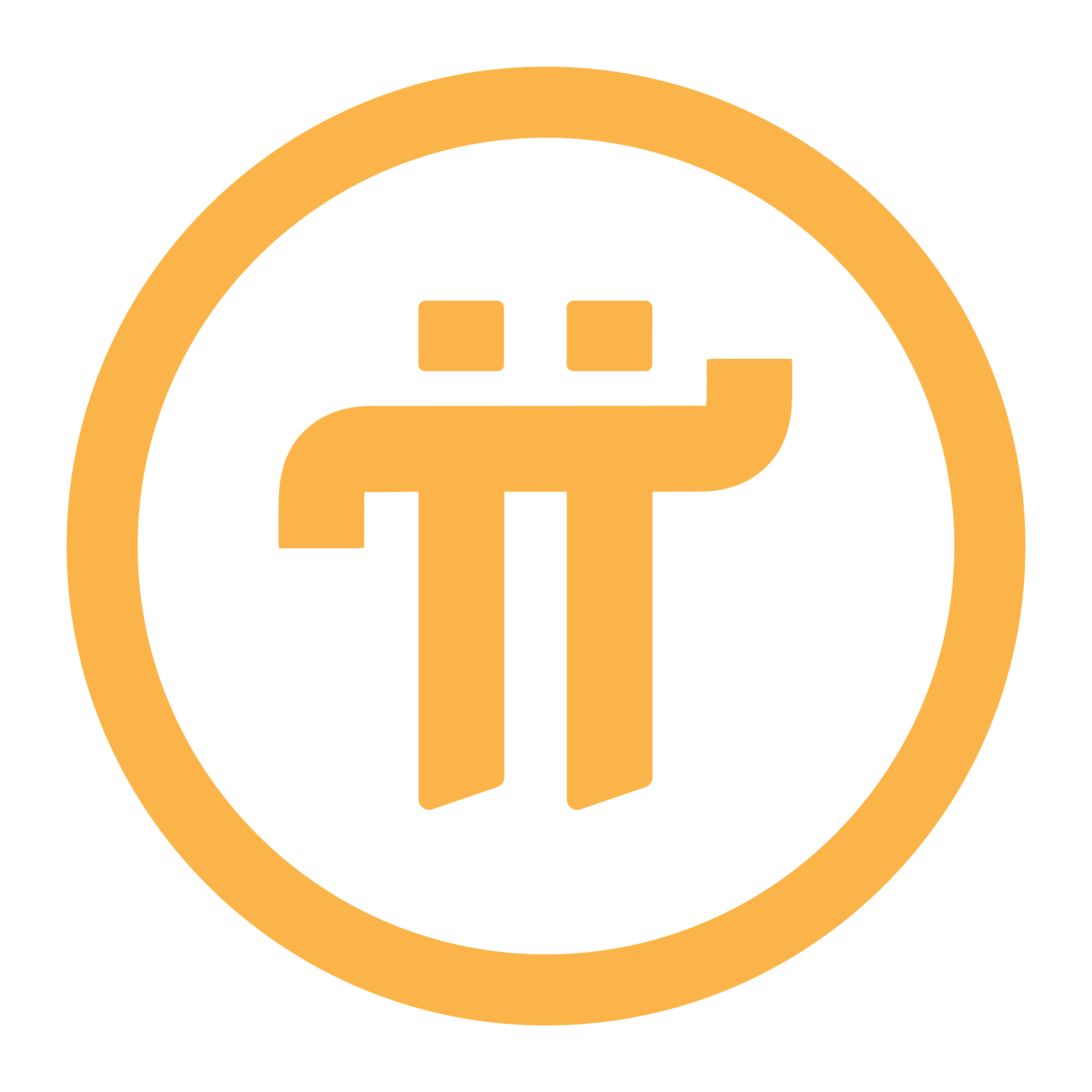
PI NETWORK
ROADMAP
Pi Network has a three-phase roadmap. Phase III is split into two parts: Enclosed Network (current) and Open Network.
Beta
Phase I

In December 2018, Pi publicly listed the mobile app on the major app stores as an alpha prototype that onboarded the initial Pioneers. On Pi Day, March 14, 2019, the original Pi Whitepaper was published, marking the official launch of Pi Network.
Testnet
Phase II

This phase started on March 14, 2020, marking another critical preparation to the transition to a decentralized blockchain—a live Testnet with distributed Nodes from all over the world. Pi Testnet along with the accessible Node software not only enabled the testing of the blockchain but also initiated the decentralized building efforts by the community to create utilities using Test-Pi.
Enclosed
Mainnet
Phase III Enclosed
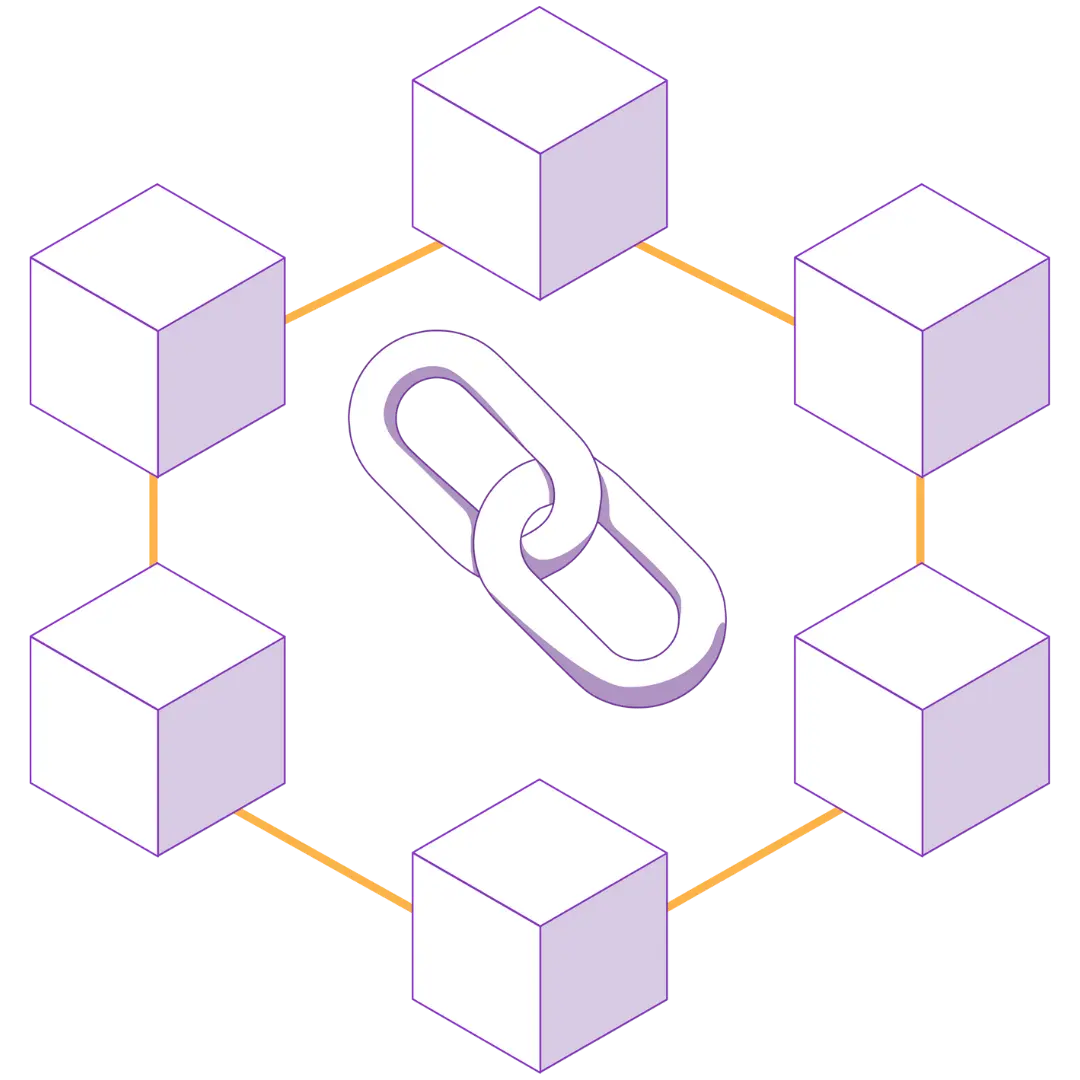
This period began in December 2021. The Enclosed Network period means that the Mainnet is live but with a firewall that prevents any unwanted external connectivity. Pioneers will be able to take time to KYC and migrate their Pi to the live Mainnet blockchain while the community builds apps and utilities on the Enclosed Mainnet for the network.
Open
Mainnet
Phase III Open

The Open Network period will begin depending on the maturity of the Enclosed Network ecosystem and the progress of the network’s KYC. Open Network means that the firewall in the Enclosed Network period will be removed, allowing any external connectivity, e.g., to other networks, wallets, and anyone who wants to connect to Pi Mainnet.

Phase III is split into two parts:
Enclosed Network (current) and Open Network.
Beta
Phase I

In December 2018, Pi publicly listed the mobile app on the major app stores as an alpha prototype that onboarded the initial Pioneers. On Pi Day, March 14, 2019, the original Pi Whitepaper was published, marking the official launch of Pi Network.
Testnet
Phase II

This phase started on March 14, 2020, marking another critical preparation to the transition to a decentralized blockchain—a live Testnet with distributed Nodes from all over the world. Pi Testnet along with the accessible Node software not only enabled the testing of the blockchain but also initiated the decentralized building efforts by the community to create utilities using Test-Pi.
Enclosed
Mainnet
Phase III Enclosed

This period began in December 2021. The Enclosed Network period means that the Mainnet is live but with a firewall that prevents any unwanted external connectivity. Pioneers will be able to take time to KYC and migrate their Pi to the live Mainnet blockchain while the community builds apps and utilities on the Enclosed Mainnet for the network.
Open
Mainnet
Phase III Open

The Open Network period will begin depending on the maturity of the Enclosed Network ecosystem and the progress of the network’s KYC. Open Network means that the firewall in the Enclosed Network period will be removed, allowing any external connectivity, e.g., to other networks, wallets, and anyone who wants to connect to Pi Mainnet.
Pi Network forms a cohesive ecosystem where apps and utilities are meant to meet practical needs, a robust platform supports decentralized development, a secure blockchain and infrastructure facilitate transactions and transparency, and an engaged community of Pioneers drives both participation and innovation—all converging to realize Pi’s ultimate vision: to build the world’s most inclusive peer-to-peer ecosystem and online experience, fueled by Pi, the world’s most widely used cryptocurrency.
The product and tech milestones in the Roadmap show progress of Condition 1 in reaching Open Network in 2024. Interested in the products and programs shaping the network? Scroll down or click one of the above buttons to view Pi’s over 20 active projects, each highlighted with their key milestones and works-in-progress.
Apps
Mining App
The Pi Mining app is the original main mobile app (available in iOS and Android) where Pi Network started and where Pioneers sign up, mine Pi, receive major network announcements, participate in community activities and interact with others in the community everyday.
See Milestones
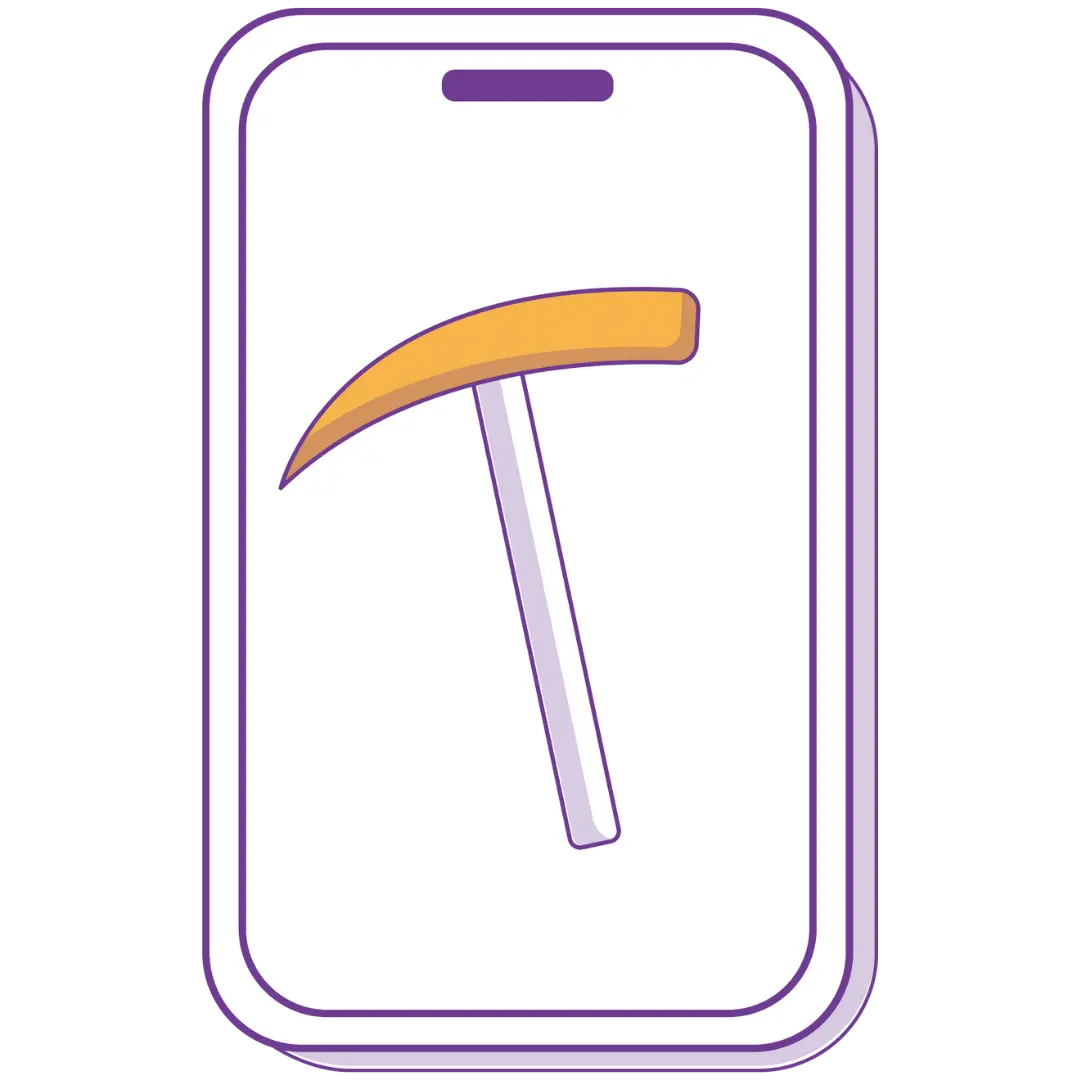
Mining App
The Pi Mining app is the original main mobile app (available in iOS and Android) where Pi Network started and where Pioneers sign up, mine Pi, receive major network announcements, participate in community activities and interact with others in the community everyday.
See Milestones
As the first and initially the only Pi App—the original vehicle to advance the Pi mission—the Pi Mining app remains a vital hub within the Pi ecosystem. It continues to host core features like Pi mining, balance and breakdown, Security Circles, Referral Team and the Mainnet Checklist—essentials for transitioning to the Mainnet—as well as serving as the launchpad for peer-to-peer growth of the network. Pioneers can easily share their referral code and a download link, further decentralizing the Pi project in its wide distribution globally as more individuals join. With its multifaceted role, the Pi Mining app empowers the global community to actively participate in shaping a more accessible and inclusive digital future. Download the Pi Mining app here.
History
Released in major mobile app stores in December 2018 alongside the initial beta phase of Pi Network.
Continued iterations and improvements to complete all Pi mining functionality and components: checking in once a day on the app, different roles in the network, and incentivizing active mining and contributions to building the network distribution and security through Referral Teams and Security Circles.
Official launch of Pi Network through the Pi Mining app on March 14th, 2019.
Reached 1,000 Engaged Pioneers in April 2019.
Reached 10,000 Engaged Pioneers in May 2019.
Reached 1 million Engaged Pioneers in October 2019.
Reached 10 million Engaged Pioneers in December 2020.
Reached 25 million Engaged Pioneers in September 2021.
Reached 35 million Engaged Pioneers in May 2022.
Reached 55 million Engaged Pioneers in June 2023.
Registration and account verification processes developed and improved over time to include phone numbers, Facebook, email verification, Apple sign-in, etc.—making it easier for Pioneers to join and engage with Pi.
Account settings and management, such as report process for compromised account, name update appeal process, hiding real name and balance option, and in-app account deletion.
Supporting regular network announcements, educational content, and community events, including surveys, Pi CoInvention, various design/art contests, yearly mining summary, community challenges, etc.
Launch of Mainnet checklist for Pioneers to track their individual progress and understand the steps needed for Mainnet migration, and Pi Lockup interface in December 2021 along with the start of the Enclosed period of Mainnet. .
Launch of new mining mechanism to include more diverse mining rewards including lockup and utility usage, etc. in March 2022.
Refresh of the UI/UX on a subset of original features, e.g., Security Circles, Referral Teams, Balance Dashboard, and Mainnet Checklist.
Creation of a dynamic content feed in the Mining App via integration of Pi App content, starting with Fireside Forum content, in order to facilitate community engagement with the utilities on the Pi platform.
Released translation mechanism to enable Pi Chat Moderator community to help translate the UI text in the Pi Mining app in 50 languages; later extended to Pi KYC and Fireside Forum apps.
In Progress
Registration and sign-in process revamp, streamlining access to Pi Network and fixing issues Pioneers experience in sign-in process.
Server stability and optimization to ensure smooth, uninterrupted service for Pioneers.
Streamline the Mainnet migration Pioneer journey to increase the completion rate of network KYC and migration: Improvements to Mainnet Checklist to facilitate its discovery and usage in enabling Pioneers to take critical steps such as setting up a wallet and submitting a KYC application, and addition of in-app prompts to guide Pioneers based on their KYC status.
Convenience features to increase Pioneers’ likelihood of completing critical steps blocking their migration to the Mainnet.
Code optimization to improve app performance.
Strategies to re-engage Pioneers who have temporarily stopped mining due to technical or other reasons.
Released translation mechanism to enable Pi Chat Moderator community to help translate the UI text in the Pi Mining app in 50 languages; later extended to Pi KYC and Fireside Forum apps.
Future Pipeline
UI/UX improvements to facilitate Pioneers’ education and engagement with Pi mining.
Curated home screen content to effectively educate new Pioneers in their onboarding journey.
Mechanism to enable second and more migrations of Mobile Balance to the Mainnet for individual Pioneers, and ensure accuracy and security.
Analysis of the mining rewards of Referral Team for Pioneers to migrate to Mainnet based on KYC data of their referral teams and overlapped historical mining activities.
Enable the migration of mining rewards from the Referral Team and make sure such migration is accurate and secure.
Pi Chats
Pi Chats is a built-in messaging solution in the Pi App for Pioneers to engage in open-format discussions which has evolved into a communications app with a Web3 mechanism designed to encourage constructive connections while curbing unwanted communications.
See Milestones

Pi Chats
Pi Chats is a built-in messaging solution in the Pi App for Pioneers to engage in open-format discussions which has evolved into a communications app with a Web3 mechanism designed to encourage constructive connections while curbing unwanted communications.
See Milestones
Pi Chats is a fundamental element of Pi Network's overall vision, providing an open, inclusive environment where Pioneers can interact and communicate with each other. Positioned not merely as a communal hub but as a Web3 general communication platform, Pi Chats empowers Pioneers to exchange ideas, learn, and converse not just about Pi, but about any array of subjects that resonate within or beyond the Pi community. As chats are an essential functionality required in many applications, Pi Chats will also expand into an integral component of the Pi platform to be integrated into other Pi Apps. In essence, Pi Chats is a manifestation of Pi Network's commitment to fostering a Web3 ecosystem where inclusivity and social connection aren’t just ideals, but everyday realities. Through consistent updates and new features to the app, Pi Chats helps this pioneering vision become a tangible experience for Pi’s growing global community, deepening the utility of Pi for Pioneers worldwide.
History
Released right after the official launch of Pi Network on March 14, 2019 as a central component of Pi’s social experience.
Enabled Community moderation and formation of voluntary Chat Moderators community to facilitate a safe, informed space by enhancing Pioneer engagement and upholding community standards, e.g., community Moderators answering questions, FAQ tabs in native languages, and enforcement actions like message deletion or user muting.
Diversified chat spaces—integral for broadening Pioneer engagement and enhancing the social and inclusive aspect of the Pi online experience, e.g. expansion to various language-specific channels for native discussions, referral team chats, #PiArt, Pi Developer, Pi Node chats, etc.
Release of Topics feature to improve high signal content and make it easy for the community to comment and react to topic-based content, e.g. Mods FAQ, and many community polls and discussions.
Chat backend migration and frontend refresh that allows Chat to have independent scaling from the main Mining app and more frequent development of new features such as a dark mode setting, a complete UI overhaul for a modern aesthetic, etc.
Staked Direct Messaging (DMs) is a Web3 innovation in Pi's mission to redefine social access that integrates tokenomics into Pi Chats. Staked DMs allow Pioneers access to any individual in the network via direct message by staking Pi when initiating a message request, promoting authentic, meaningful connections while deterring spam.
In Progress
Backend enhancements to improve performance, including specific optimizations focused on increasing speed.
User experience enhancements through features like notifications for Direct Messages and mentions in channels.
Future Pipeline coming soon!
Fireside Forum
Fireside Forum is a Web3 social networking app that leverages Pi cryptocurrency and innovative tokenomics to create a decentralized, authentic space for meaningful conversations.
See Milestones

Fireside Forum
Fireside Forum is a Web3 social networking app that leverages Pi cryptocurrency and innovative tokenomics to create a decentralized, authentic space for meaningful conversations.
See Milestones
Fireside Forum is a Web3 social networking app that fosters authenticity, constructive conversations, and healthier online social interactions by integrating tokenomics into the core of social interactions. Fireside aims to foster an environment where Pioneers harness the power of Pi cryptocurrency—through novel tokenomics designed to both reward positive interactions and curb negative actions—to build decentralized communities, express themselves, and engage in meaningful interactions. Fireside Forum is the first instantiation of Core Team’s vision on the Web3 online social space. It is important because Fireside Forum and other future Web3 social applications will (1) demonstrate and lead what true Web3 social apps should be and how blockchain technology can help create and support a self moderating decentralized network primarily based on cryptoeconomics, (2) create utility of Pi cryptocurrency in real-life use cases, exceeding the confinement of financial products offered by blockchain—all part of Pi’s mission and a goal of Pi’s Enclosed Mainnet period—and (3) create the next generation of online experience and improve people’s online social interactions using blockchain and cryptocurrencies to solve the flaws of Web2 social apps. Check out Fireside Forum on PiNet and learn more here.
History
Released May 30, 2023 with text-only post capability for millions of KYC-enabled Pioneers to interact with one another.
New content mediums became shareable, such as a fully functioning image upload capability in the #PiArt channel and the ability to add web links in the #News channel.
Various UX upgrades such as automatic translation, navigation improvements, search functionality, personalized experience via follow/unfollow feature, visible in-app user activity on the profile page, etc.
Enhancements towards user guidance, experience and support, e.g. Menu bar with FAQs, language selection, banner tutorials, general performance improvements, and video tutorials have been introduced.
Decentralized Moderation system initial version has been released and will continue iterating. This system aims to help Pioneers moderate Fireside Forum content in a decentralized way, rewarding accurate moderation contributions and penalizing inaccurate or abusive ones, using a tokenomics-based meritocratic framework with various tiers of moderators.
Push Fireside Forum content to the dynamic-content feed of the Pi Mining App, in order to facilitate community engagement with Fireside’s content on the home screen of Pi.
Improvements to the feature that facilitates easier sharing of Fireside Forum content via PiNet, which will be later enabled on other Pi Apps through the ecosystem.
Over 10.1 million in-app Fireside tokens spent as of October 2023.
In Progress
Improving educational and support content for moderation and the community especially in support of the Decentralized Moderation feature.
Examining and iterating any tokenomics adjustments to make sure Fireside Forum achieves its design goals.
Support the building and testing of the platform-level utility feature.
Enhancing the Negative Fire feature's usability.
Community outreach and organization for content creators and influencers to boost and guide varied content creation on Fireside Forum, showcasing Web3’s potential for improved social interactions and experience as well as Pi utilities.
User Experience (UX) enhancements, such as more relevant content feeds and advanced content discovery tools.
Future Pipeline
Expand content mediums with a more diverse set of interaction methods such as video and audio posts. This also includes extending existing content mediums like web link sharing and images to become available across all channels.
Mechanism to potentially convert Fireside tokens back to Pi cryptocurrency.
Brainstorm
The Brainstorm app is a place for community developers and all Pioneers to propose Pi Apps ideas, join existing projects, and review project ideas.
See Milestones

Brainstorm
The Brainstorm app is a place for community developers and all Pioneers to propose Pi Apps ideas, join existing projects, and review project ideas.
See Milestones
Pi Brainstorm serves as a vibrant hub of ideas for Pioneers and developers to collaborate and innovate—uniting and inspiring one another to contribute to the growth of the Pi ecosystem. In short, Brainstorm helps the network collectively propose new Pi App ideas and allow Pioneers to form or join teams to make their ideas a reality. Its vision is to facilitate the creation of creative, utility-focused mobile web apps that address real user needs, empower the use of Pi cryptocurrency, and provide intuitive accessibility for people from all walks of life. Brainstorm is also the host app for Pi Network’s various past hackathons and the currently ongoing monthly hackathons that have resulted in many interesting and useful community Pi Apps live in the Pi ecosystem. The design of the app relies on the same principles of decentralized efforts to scale and benefit from the wisdom of the crowds, where the reviews and selection of ideas and projects to advance to the next stage are community-driven through various rounds of blind reviews by randomly selected Pioneers.
History
Released March 2021.
Created and iterated on features for project creation, team formation, project submissions, developer status vetting, project filtering system and hackathon support.
Revamp of community blind reviews and voting mechanism to better identify and advance good projects and filter out spams.
Supported the 2021 and 2023 Pi hackathons.
Extracted and further automated many hackathon processes into an on-going Hackathon feature that supports running the monthly hackathon program.
In Progress
Improve the user experience, especially related to the ongoing hackathon feature.
Backend performance improvements.
Platform
Pi Browser
The Pi Browser is the gateway to Pi’s Web3 app ecosystem where Pioneers engage with apps using their Pi account and transact with their Pi Wallet—it’s the sole platform for securely entering Pi Wallet passphrases.
See Milestones

Pi Browser
The Pi Browser is the gateway to Pi’s Web3 app ecosystem where Pioneers engage with apps using their Pi account and transact with their Pi Wallet—it’s the sole platform for securely entering Pi Wallet passphrases.
See Milestones
In line with Pi Network's vision of nurturing a Web3 ecosystem, the Pi Browser serves as the network's primary dApp platform, propelling the utility and adoption of Pi cryptocurrency. Within the Pi Browser, Pioneers have the option to verify their identities using the KYC app, enhancing their experience within the ecosystem. They can access a multitude of third-party apps crafted by independent developers (see examples in the "Ecosystem Interface" section), not all of which require payment or KYC verification. Developers benefit from tools like the Developer Portal to manage their apps, the platform's SDK and APIs, and the Brainstorm app for collaborating with fellow Pioneers on ideas and projects. Pioneers can effortlessly navigate various apps using a single Pi account and interact with the Pi blockchain through their Pi Wallet, a Web3 innovation prioritizing simplicity. Furthermore, the Pi Browser supports testing and integration with Pi's tech stack, including the Pi Testnet, Pi Chat, and Pi Wallet. Learn more.
History
Launch: Debuted on April 8, 2021, providing Pioneers with straightforward access to Pi Apps via a URL address bar and facilitating the creation of Pi Apps by global community developers without mandatory Core Team reviews.
User-Centric Design: Simple initial design for easy navigation, facilitating a single sign-in for Pioneers that works across Pi Apps, and intuitive in-app payments through the official Pi Wallet app. Additionally, Pioneers can easily identify the current app being accessed.
Developer Support: Integrated the Pi SDK and the Pi Developer Platform and built the Developer Portal, championing community-driven app development within the browser.
Mining Mechanism Upgrade: On March 14, 2022, the mining mechanism was revamped to introduce app engagement rewards, further promoting the usage of Pi Apps on the Pi Browser.
User Onboarding: Facilitating new user registrations directly from the Pi Browser's first download.
Integration with PiNet: Enabling app content sharing on PiNet.com and ensuring a smooth transition for new users from web-shared content into the Pi Browser.
UI Revamp: A significant user interface upgrade, aiming for a more intuitive modern navigation and enriched user experience that addresses the needs of decentralized Web3 Pi Apps.
Ecosystem Interface: On March 14, 2023, a dedicated platform to spotlight Testnet Pi Apps was created, benefitting both Pioneers by offering a curated selection of top-tier community apps and developers by expanding their Pioneer engagement potential.
In Progress
Ecosystem Interface Expansion: Integrating Mainnet apps with the Ecosystem Interface, broadening the range of accessible services alongside the current Testnet apps.
Future Pipeline
Any native changes required by platform features.
Ecosystem Interface
The Ecosystem Interface in the Pi Browser showcases curated Testnet and Mainnet Pi Apps built by the community, giving a preview of the potential Mainnet Ecosystem and its diverse use cases.
See Milestones

Ecosystem Interface
The Ecosystem Interface in the Pi Browser showcases curated Testnet and Mainnet Pi Apps built by the community, giving a preview of the potential Mainnet Ecosystem and its diverse use cases.
See Milestones
In the Pi Browser, apps are accessed similarly to other browsers, via URLs. The Ecosystem Interface, accessible from the browser's home screen, provides Pioneers a curated selection of Pi Apps based on criteria established by the Pi Core Team. These criteria encompass app development milestones, user experience, and adherence to Pi Network policies, with potential future tiering based on app quality. For developers, this Interface presents a unique opportunity to showcase their apps to a vast audience, promoting real-user testing and enhancement. The inclusion of apps in this Interface underscores the Pi Network's commitment to fostering a decentralized Web3 environment, prioritizing user-driven interactions and the evolution of Pi cryptocurrency utilities.
Pioneers, explore the Ecosystem Interface within the Pi Browser, delve into diverse Pi use cases, provide invaluable feedback to developers, and utilize your mined Pi in tangible ways. Each Pioneer's contribution is vital in shaping the utilities of the Pi cryptocurrency.
History
Initial Launch: Ecosystem Interface introduced on March 14, 2023, spotlighting an initial selection of Testnet apps.
Continuous App Inclusion: Additional Testnet apps incorporated as they progress and meet basic criteria like functionality, with many sourced from the ongoing Pi hackathons.
Developer Engagement: Via the Developer Portal, creators can propose their apps for listing on the Ecosystem Interface, expanding their reach to Pi’s vast Pioneer community.
User Vigilance: Although the listed apps adhere to Core Team criteria, Pioneers are encouraged to exercise vigilance and prudence, as the Pi Core Team cannot guarantee complete safety and has not verified these community-created apps.
In Progress
Inclusion of Unverified Mainnet Apps: A new procedure to integrate Unverified Mainnet apps alongside the Testnet selections.
PiNet
PiNet.com bridges Pi's Web3 apps to the Web2 world, letting Pioneers interact with them on any browser via subdomains like fireside.pinet.com.
See Milestones

PiNet
PiNet.com bridges Pi's Web3 apps to the Web2 world, letting Pioneers interact with them on any browser via subdomains like fireside.pinet.com.
See Milestones
PiNet extends the reach of Pi Network, making Web3 Pi Apps available not just to its 55+ million members but also to the vast Web2 audience. Compatible with browsers like Chrome, Safari, and Brave, PiNet enhances Pi Network's appeal. Pioneers can share content from Pi Apps with friends who are not Pioneers yet, and these friends can instantly access it on pinet.com with limited functionality, paving the way for easy onboarding to the full experience in the Pi Browser. This not only champions Web3 in the Web2 world but also provides a compelling reason for new Pioneers to join, broadening the Pi community's global footprint.
Pioneers, get ready to amplify your favorite Pi Apps and content! Share them with friends and across social media, becoming ambassadors of the Pi Web3 ecosystem.
History
Launch: Unveiled on May 30, 2023, PiNet revolutionized the accessibility of Pi Network to the Web2 audience.
First App Integration: Fireside Forum became the pioneering Pi App on PiNet, accessible universally on web browsers at fireside.pinet.com, symbolizing Pi Network's commitment to broadened accessibility.
Sharing Enhancements: An upgraded experience for sharing specific Web3 content from Pi Apps via PiNet is in the pipeline, with customizable, visually-striking thumbnails for shared links.
Enhancements to the PiNet user journey to facilitate its broader adoption in bringing the Pi ecosystem to non-Pineers around the world.
Thumbnail enhancements for shared PiNet links to include contextual information about the Pi platform.
Pi Apps domains will change to PiNet domains so that such domains allow Pi apps fully accessible in the open web without the dependency of users using Pi Browser–the purpose of PiNet (e.g., wallet.pi will be moved to wallet.pinet.com).
Open Access for Community Apps: Community-driven Pi Apps from the Ecosystem Interface can now seek PiNet integration via the Developer Portal, heralding a more inclusive and expanded platform.
In Progress
Further Core Team App Integration: Anticipate the addition of more Core Team Pi Apps to PiNet, further expanding its range.
Community Inclusion: Community-crafted Pi Apps highlighted in the Pi Browser's Ecosystem Interface will feature on PiNet, painting a richer picture of Pi's ecosystem.
Integration of PiNet.com and the main website of the network, minepi.com, to facilitate PiNet adoption and provide additional context of Pi Network to new users experiencing PiNet.
The development of a more streamlined and user-friendly process for Web3 app creators to present their Mainnet applications for inclusion on PiNet.
Pi Mining Guide: A forthcoming guide will demystify Pi mining for newcomers, showcasing its simplicity and serving as an attraction for more Web2 denizens to embrace Pi Network.
Future Pipeline
Additional apps available on PiNet as they progress and meet basic criteria.
Developer Platform and Tools
The Pi Developer Platform is a Web3 platform offering direct access to a large passionate user base, simplified development process, and supportive resources, thus enabling the creation of diverse utilities of the Pi cryptocurrency.
See Milestones
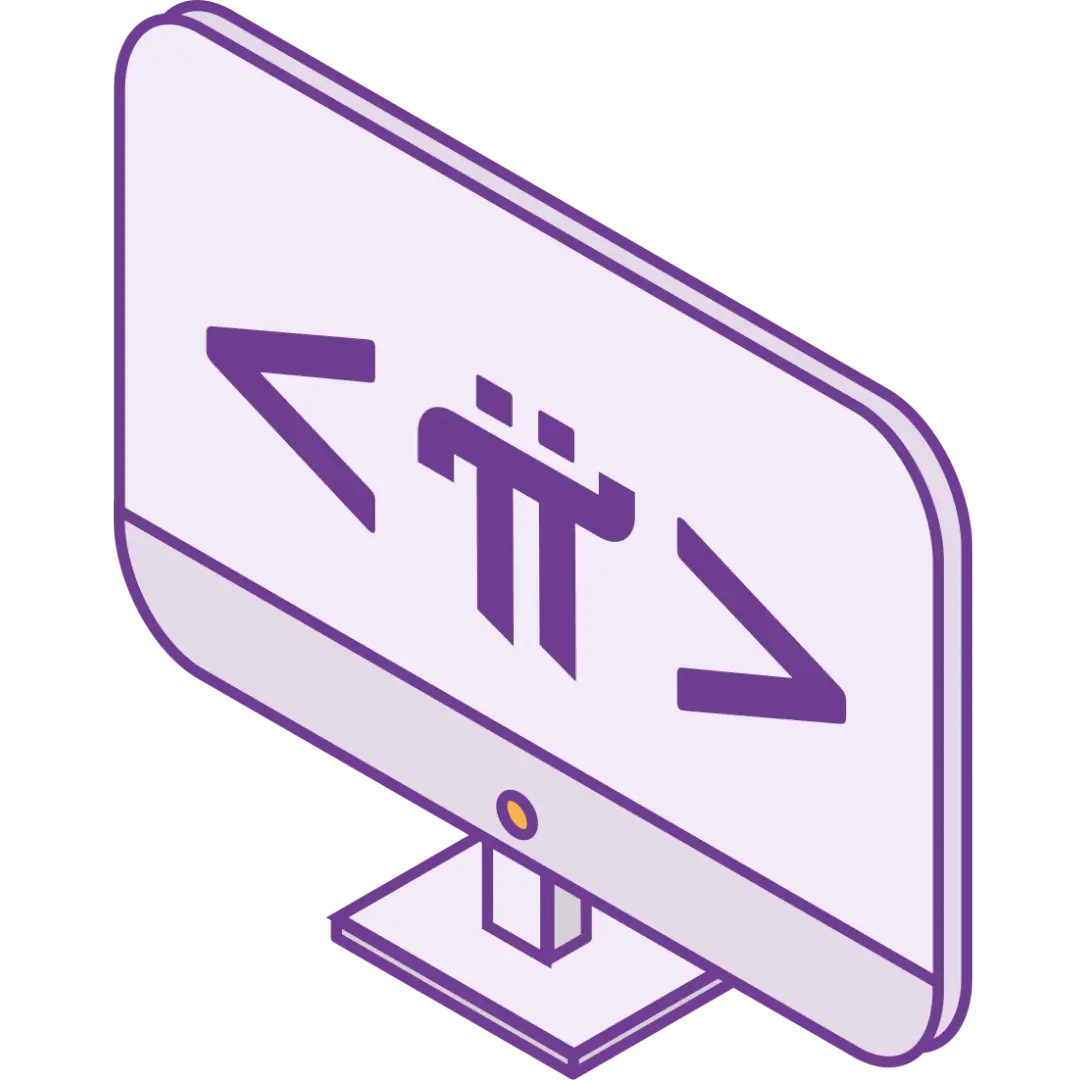
Developer Platform and Tools
The Pi Developer Platform is a Web3 platform offering direct access to a large passionate user base, simplified development process, and supportive resources, thus enabling the creation of diverse utilities of the Pi cryptocurrency.
See Milestones
The Developer Platform is a pivotal component of the Pi ecosystem, enabling community developers to integrate their app with the Pi blockchain and create utilities of the Pi cryptocurrency. The platform SDK and APIs enable Pi Apps to communicate with the Pi blockchain and APIs for functions such as facilitating Pi payments, verifying Pioneer information, and requesting and verifying transactions and payments. Building a Pi App on the platform requires no specialized blockchain programming skills, thus lowering barriers to entry and expanding access to Web3 development. By doing so, the platform enables the creation of a wide variety of real-world utilities and use cases, harnessing the collective creativity and expertise of the Pi community. For those interested in diving deeper into the Developer Platform, see the Pi Developer webpage.
History
Released on June 10, 2021 along with the Developer Portal to allow for the creation of Pi Apps integrated initially with the Testnet Blockchain for testing purposes. Pi platform’s APIs were added, giving community developers access to the tools such as Pi payments and user account authentication, which are both needed to develop on Pi.
SDKs include features for user verification as well as app-to-user and user-to-app payments.
Released an initial and then a fully functional platform emulator (Sandbox) to allow development on desktop browsers so that developers can build and debug their Pi Apps directly on their computers.
Updated the platform in 2022 to support Pi Mainnet Applications giving developers access to transact Mainnet Pi for the first time, following the launch of the Enclosed Mainnet on December 28, 2021.
Released Demo Pi App with Pi SDK integration available for developers to use as a template to build on.
Pi App Engine V2 created as an internal Core Team platform for hosting Pi Apps on scalable cloud infrastructures. This has not been released to the general developer community at this point.
A novel Pi Open Source (PiOS) software licensing framework released to foster collaboration within the Pi developer community, leading to sharing of the codebase of various apps and libraries.
Two distinct developer wallets developed for Pi Apps: multi-signature wallets (akin to a "savings" accounts) for receiving Pi from Pioneers, and standard wallets (similar to "checking" accounts) for sending Pi to Pioneers."
Enabling community-built Pi apps already featured on the Ecosystem Interface of the Pi Browser to be listed on PiNet, showcasing a diverse and dynamic Pi Web3 ecosystem to the wider Web2 world.
Developers can apply to get their app-specific chat room channels on the Pi Chats app to engage with their Pioneer users in a public forum.
In Progress
Ecosystem Interface to include listings for unverified Mainnet apps along with the currently listed Testnet apps.
A major utility feature on the platform level that facilitates the sustainability of Pi apps and overall utility of Pi cryptocurrency.
Ongoing updates to Community Developer Guide.
Future Pipeline
Ability to overlay the Pi Chatroom channel associated with a Pi App directly in the Pi App, removing an extra step for Pioneers in communicating with the developer team.
Improved and streamlined developer documentation as well as ongoing updates to Community Developer Guide.
Enable via platform’s SDKs and APIs additional functions and tools to facilitate utility creation.
Developer Portal
The Developer Portal is a one-stop app management tool for Pi App developers, enabling access to the tools and resources of the Pi Developer Platform
See Milestones
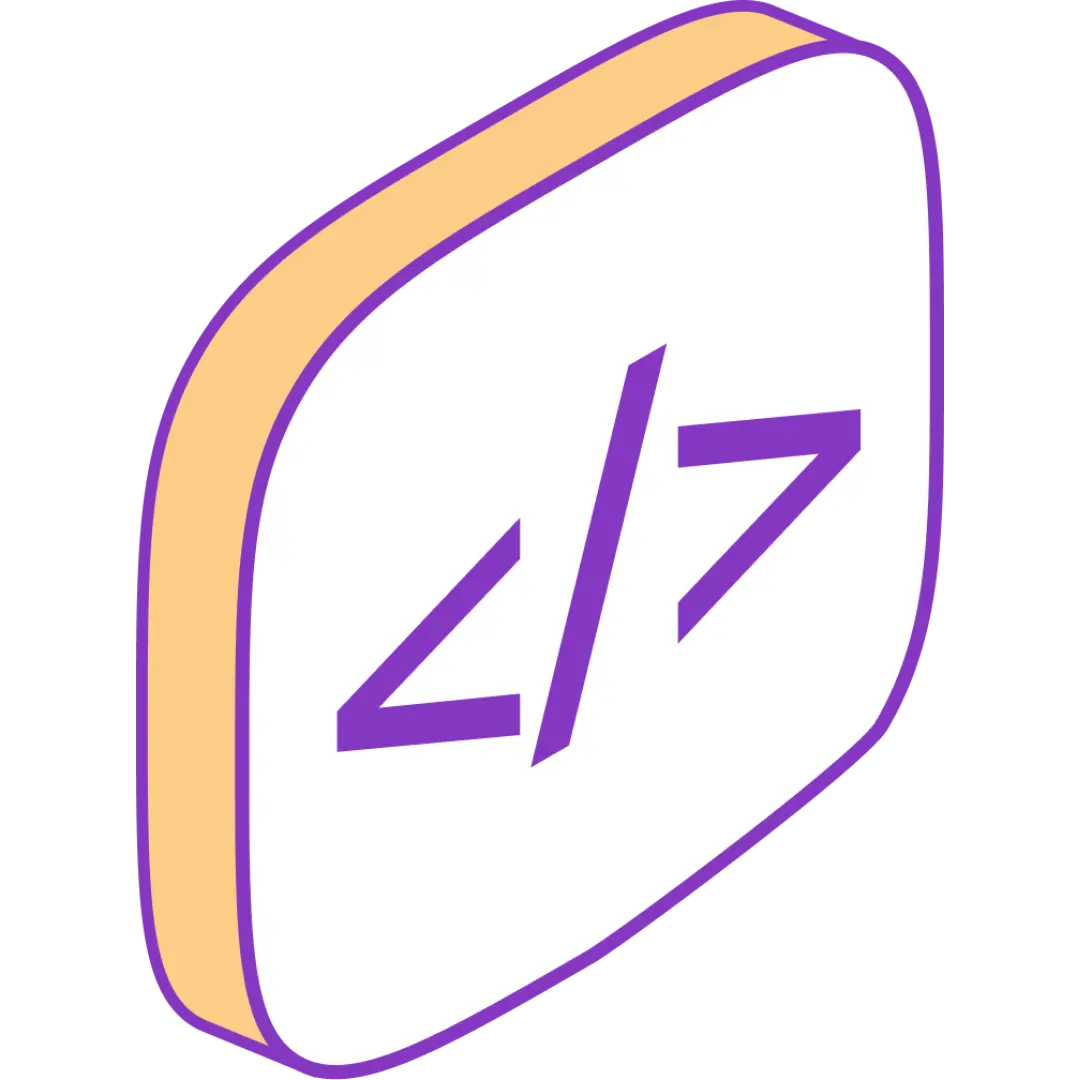
Developer Portal
The Developer Portal is a one-stop app management tool for Pi App developers, enabling access to the tools and resources of the Pi Developer Platform
See Milestones
The Developer Portal enables developers to register and manage their own Pi Apps. Once registered, these web apps can access the Pi App Platform, enabling communication with the Pi servers and the Pi Blockchain. This connectivity allows for user authentication and the initiation of Pi Payments.
History
Released June 10, 2021 alongside the Developer Platform, the Portal allows developers to register and update information for their Pi Apps in one place.
Through this one interface, applications can acquire two types of developer wallets, get listed in the Ecosystem Interface of the Pi Browser, obtain a PiNet weblink, and set up an App-specific public chat room channel in the Pi Chats app, simplifying the developer experience.
Updated user interface, application checklist, and dashboard interface were deployed in Q1 of 2023 for improved management of Pi Apps.
In Progress
Any associated updates to the Developer Portal based on changes of the Pi Platform.
Continued updates to previously released features such as improvements to the application for developer wallets, feature to register for a PiNet subdomain, or the feature to request selection into the Pi Ecosystem App, and any additional features available for developers on the platform that require application and selection processes.
Future Pipeline
Revamp Community Developer Guide based on developer feedback to help speed new developers’ onboarding to the platform.
Enable developers to register and update Pi Apps for the Mainnet.
User interface updates to improve the visual design of the Developer Portal.
Streamlining the process of launching and maintaining applications to make it easier and more efficient for developers.
Blockchain Essentials
Blockchain
The Pi blockchain is an energy-efficient, decentralized ledger that records all Pi transactions, enabling secure and verifiable exchanges of Pi for app usage, goods, and services.
See Milestones

Blockchain
The Pi blockchain is an energy-efficient, decentralized ledger that records all Pi transactions, enabling secure and verifiable exchanges of Pi for app usage, goods, and services.
See Milestones
The Pi blockchain functions as the backbone of the entire ecosystem, providing the infrastructure for secure transactions as well as a platform for Web3 development. The Blockchain is currently on the Enclosed Network period of Mainnet, which means that the Mainnet blockchain is live but with a firewall that prevents external connectivity with other blockchains or exchanges. Adapted from Stellar Consensus Protocol (SCP) using Federated Byzantine Agreement, Pi Blockchain allows a large number of individuals via their devices to contribute on the protocol level. This participation is facilitated through desktop Nodes and daily Security Circle confirmations on the mobile app. In return, participants earn rewards via Pi's meritocratic mining mechanism. The unique contribution of the Pi blockchain lies in its tens of thousands of computer nodes powering its distributed system, coupled with the tens of millions of real humans on its Trust Graph bolstering its security. Instead of expending energy on redundant hashes as in proof of work, Pi's consensus algorithm relies on cost-effective voting among nodes, prioritizing voting opinions of those with high trust from the Trust Graph. Learn More
History
Testnet Pi blockchain went live on March 14, 2020, initiating the second phase of the network: Testnet phase.
Ongoing tests for stability, scalability, and transactions on Testnet.
Third party App Development Platform launched on June 10, 2021, enabling developers to interact with the Testnet blockchain through SDK API calls.
Enclosed Mainnet Pi blockchain was launched on December 28, 2021, initiating the Enclosed period of the Mainnet Phase. A firewall was deliberately put to guard the blockchain from external connections to enforce the “enclosed” nature of this period.
Ability for Pioneers to migrate their Pi to their Mainnet Wallet began on June 28, 2022, allowing the use of Pi within the Enclosed Mainnet period.
Ability for Pi Apps to interact with the Mainnet blockchain through SDK API calls on July 26, 2022, facilitating a seamless integration of real Pi transactions in the ecosystem.
In Progress
Implementing post-Mainnet migration Pi Lockups to continue supporting a healthy and smooth ecosystem and incentivize long-term engagement with the network while the network is bootstrapping and creating utilities.
Ensuring stability and 100% uptime.
Supporting and optimizing Mainnet migrations and ecosystem transactions in the Enclosed Network period.
Upgrade blockchain versions for Testnet and Mainnet.
Work to ensure scalability.
Work to ensure redundancy.
Create and implement emergency plans, and create and run simulations.
Analyze and evaluate various existing and future blockchain features following the Pi principles and the need of Pi Ecosystem for the initiation of the Open Network.
Implement the conclusion of the above analysis.
Implement any configuration changes to initiate Open Network.
Research and design on new blockchain features that can better support utilities.
Future Pipeline
Bring Testnet and Mainnet environments to parity.
Preparation work for removing the firewall of the Enclosed Network.
Node
The Pi Node allows Pioneers to run the blockchain in a user-friendly way on their computers to contribute to the security of the network, and to access most of the Pi mobile app functionalities in a desktop application.
See Milestones
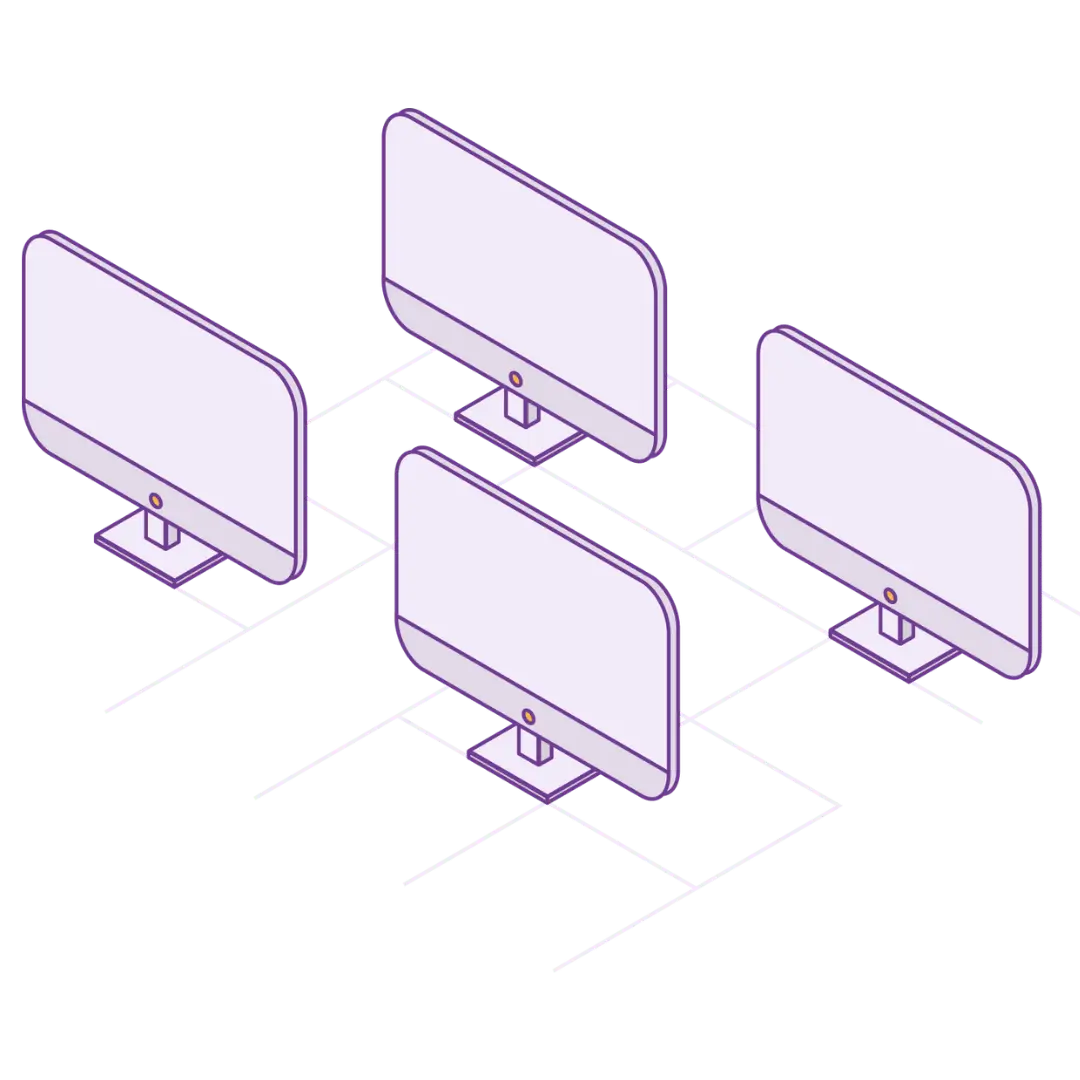
Node
The Pi Node allows Pioneers to run the blockchain in a user-friendly way on their computers to contribute to the security of the network, and to access most of the Pi mobile app functionalities in a desktop application.
See Milestones
Nodes play an essential decentralized role in the Pi ecosystem by running the blockchain, contributing to the security and validation of transactions as well as the consensus-building process on the distributed ledger. They are designed to run on laptops and desktops. To encourage active and stable services, Pioneers who run nodes are rewarded with boosts to their mining rates based on how much and how stable and reliable the contribution they make to the consensus. Pi Nodes specifically also provide user-friendly accessibility to the Pi applications, broadening the range of devices that people can use in the network. They also create the potential for the network to have protocol-layer applications in the future.
History
First release of Node software available for download and install on computers to run Pi Applications on March 31, 2020.
Second release of Pi Node available for download that included necessary technical preparation steps for individual Nodes to install so that they get prepared to run the consensus algorithm.
New node version was released that actually runs the blockchain (Testnet) in September 2020.
500+ active Testnet Nodes by the end of 2020, and over 10,000 by Pi Day 2022. Currently over 100,000 Nodes that are activated through the Node application.
Rolled out new mining rewards for operating Pi Nodes on March 14, 2022 based on the new mining mechanism explained in the December 2021 Whitepaper update.
Ability for community Node operators to test their Node deployments such as port checking.
Auto-updating functionality for Pi Node desktop app (Node frontend).
Ability to upgrade the version of the Pi Blockchain’s consensus protocol (Node backend container).
Ability for individual Node operators to remove unused local historical blockchain state data to reclaim local disk space, while the network keeps the historical data with ample redundancy.
In Progress
Investigate and fix bugs reported by the community, including cases experiencing infinite spinner, disconnect of mining boost from performance, Docker compatibility issues and more.
Develop more advanced analytics infrastructure to better surface Node issues.
Implement infrastructural changes to improve and speed up the Node application deployment process.
Develop and improve Mainnet Node software that is compatible with the Mainnet blockchain; roll out the first version of Mainnet node software.
Continual updates and enhancements to the Node software, including auto-updating features to ensure all Nodes are operating with the latest protocols and security measures.
Improve Node analytics to inform Open Network period and to enhance visibility into Node performance and diagnostics.
User Interface Improvements: Upgrades to the Node desktop application to improve usability and accessibility, such as switching between Testnet and Mainnet, as well as to display analytics of historical Node reliability and other data, making it easier for Pioneers to participate in running Nodes.
Adapt Node application to be compatible with the blockchain requirements and add features resulting from the work under Blockchain.
Improve and calibrate Node bonuses.
Future Pipeline
Enable Pioneers to operate Nodes for the Mainnet blockchain. Educational content will also be released to help prepare Pioneers to operate Mainnet Nodes.
Set and communicate criteria for Super Node Selection, which are key to the decentralization of the network.
Enable node operators to further customize their node’s configuration in the Node application.
Plan and work to support node activities after Open Network.
Update Node webpage on minepi.com accordingly.
KYC
Pi KYC or “Know Your Customer” is a procedure to identify and verify Pioneer identities, to comply with regulations and to ensure Pioneers within the Pi Ecosystem are real individuals.
See Milestones
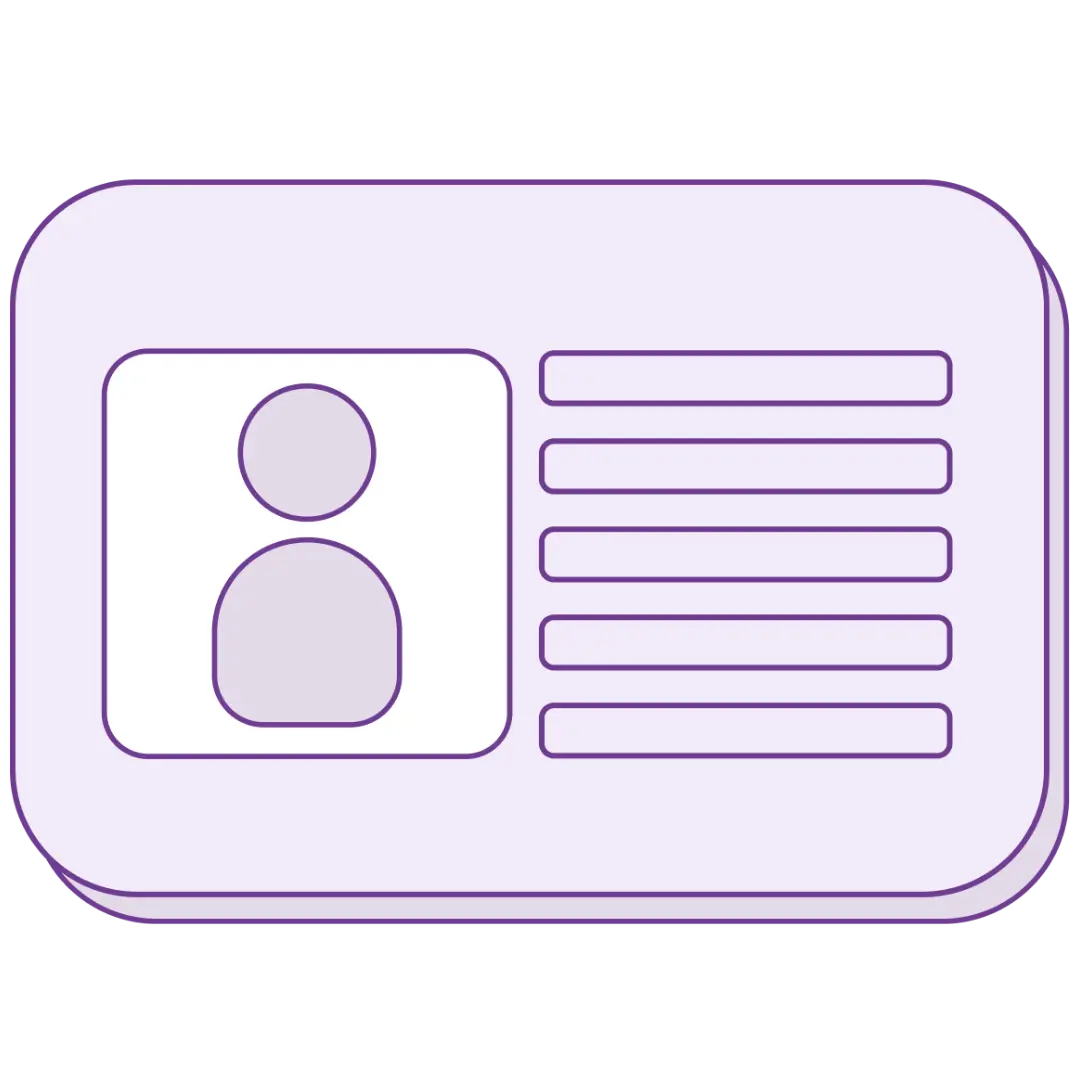
KYC
Pi KYC or “Know Your Customer” is a procedure to identify and verify Pioneer identities, to comply with regulations and to ensure Pioneers within the Pi Ecosystem are real individuals.
See Milestones
KYC verifies Pioneer identities to (1) comply with regulations and (2) ensure that the Mainnet peer-to-peer interactions are real and accountable. Pi Network’s strict policy of one account per person requires a high degree of accuracy to establish that members in the network are genuine human beings, preventing individuals from being able to hoard Pi by creating fake accounts unfairly. Passing KYC is a prerequisite to a Pioneer’s migration of the Pi balance from the Pi Mining app to the Mainnet blockchain. The innovation of Pi KYC solution is to achieve scalability and effectiveness through a native decentralized design while protecting privacy. Drawing on the power of the community itself along with using machine automation, Pi KYC solution is free of fiat-cost for all Pioneers while labor is exchanged in Pi and utility of Pi cryptocurrency is created for the ecosystem. Furthermore, a massive KYC’ed crypto-enabled social network, as a result, provided by Pi community will make it easy for the world to deploy and operate more Web3 services and empower the future AI-pervasive world by bringing in human authenticity in the era to come. Learn More.
History
Design, development and testing of Pi KYC solution from 2021 to early 2022 that include checks on the KYC requirements required by laws, such as AML, anti-terorrism and sanctions, and Pi Network policies.
Scalable Pi KYC solution was launched to the majority of the network in June 2022.
1 million Pioneer applications were submitted, validated and verified within the first month after the release of the scalable KYC solution.
March 2023: KYC application was open to all eligible Pioneers, with a tentative KYC program that gives accounts with more complex properties a chance to proceed with KYC and provide proof of their identities.
First version of the system to analyze the work quality of human Validators and evaluate them was deployed—a significant component of KYC Validator quality and scalability.
Tackling corner cases, such as documents with multiple images or with pictures of famous characters.
More advanced version of Validator grading system to distinguish a top tier of trusted Validators for conducting higher-stake tasks such as manual reviews to supplement machine automation, which can significantly improve KYC throughput.
Solution to unblock KYC applications with missing data fields with help by trusted Validators.
Validator review may be extended to help unblock other parts of KYC such as Tentative KYC cases, etc.
KYC App Analytics Enhancements: Advance the analytics capabilities to better track and understand KYC process flows, aiming to identify and rectify bottlenecks more effectively.
Identify and enable applications to receive an opportunity to resubmit their applications that can help resolve the corner cases that currently prevent them from going through.
Continuing to streamline the KYC funnel by solving bugs or technical blockers. E.g., Pioneers' KYC applications were stuck for various reasons, including need for small name updates, failure to process liveness, failed selfie uploads, failed image extractions, missing information fields, UX deadends, etc.
In Progress
Review system being built for Pioneers to appeal and sort out rejection reasons.
UX enhancements to provide more in-app guidance, education and easier onboarding to avoid resulting in corner cases that can get stuck.
Improvements in the KYC analytics pipeline.
Improve application tools such as liveness checks to ensure the collection of additional necessary information to reduce the chance of applications getting stuck.
Continue to identify new blockers in the KYC process and reduce the majority of major blockers so all eligible Pioneers can go through KYC without major issues or delays.
Iterate on the additional checks and their resolutions for tentative KYC cases so those Pioneers can completely pass KYC and migrate to the Mainnet while the applications that should not proceed are identified and sent to their appropriate paths, be it resubmission, rejection or appeal, etc.
Appeal and Review Mechanism: Construct a system for Pioneers to contest KYC rejections, providing clarity on rejection reasons and a clear pathway to appeal their case.
Revamping KYC onboarding flow, allowing Pioneers to directly start KYC in the mining app
Building the additional checks required to process Tentative KYC cases.
Future Pipeline
Calculation and disbursement of KYC validator Pi rewards from the pool of Pi paid by KYC applicants.
Token Model and Mining Mechanism
The Pi token model and mining mechanism is a principal framework to identify and reward contributions to the evolving needs of the network such as security, growth, inclusion, utilities creation, stability and longevity, etc.
See Milestones
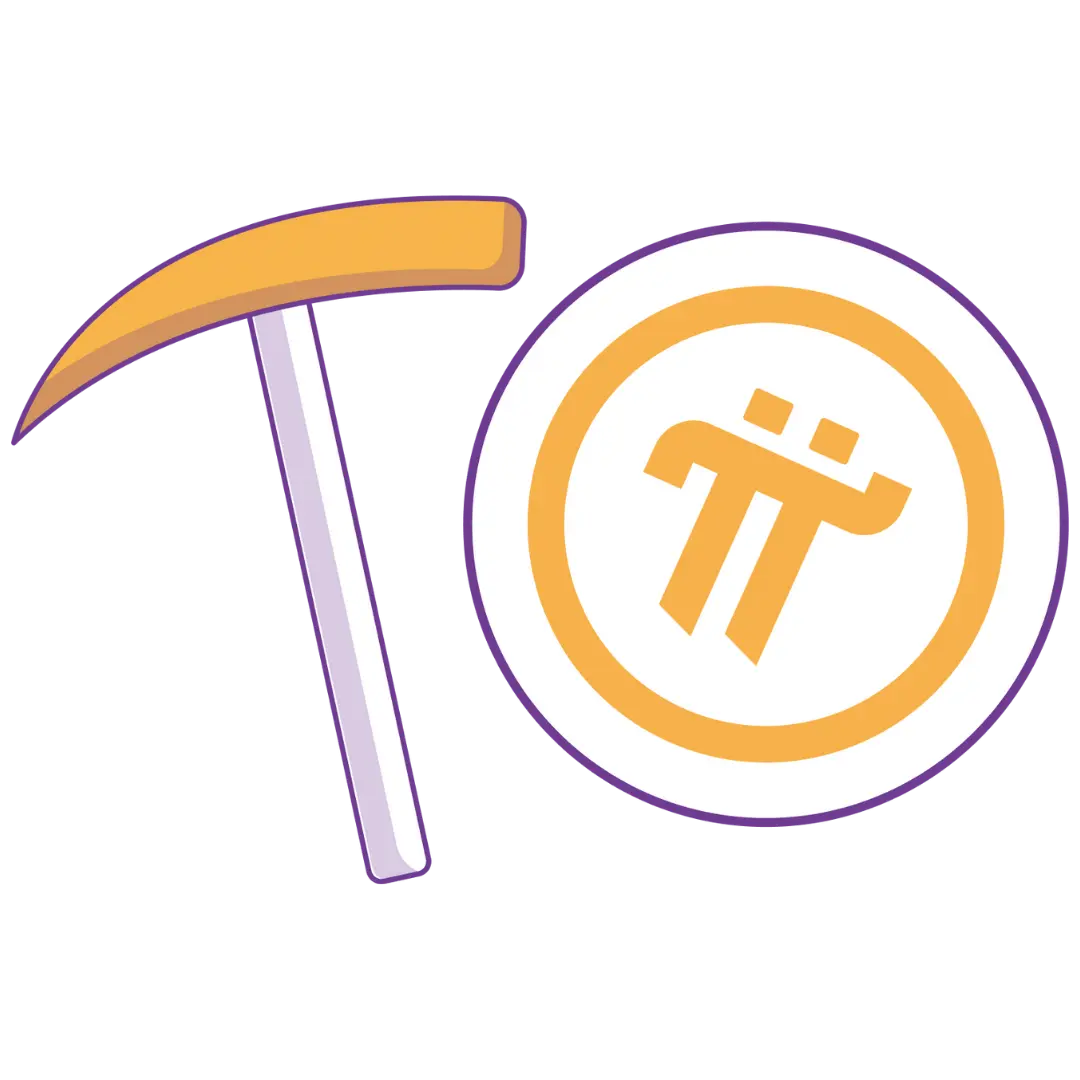
Token Model and Mining Mechanism
The Pi token model and mining mechanism is a principal framework to identify and reward contributions to the evolving needs of the network such as security, growth, inclusion, utilities creation, stability and longevity, etc.
See Milestones
A token model is a core foundation of a cryptocurrency network. As Pi Network proceeded through different stages of the network roadmap, namely, the Beta phase, Testnet phase, and Mainnet phase (the current Enclosed Network period of the Mainnet phase to be precise), various needs of the network have evolved in relative importance. Pi’s token model and mining mechanism has evolved accordingly to address such changing needs and incentivize increasingly diverse forms of contributions the network relies on. Specifically, the Pi mining mechanism rewards such contributions in a meritocratic and formulaic manner. The Pi rewards are generated in the Pi blockchain based on a token supply model.
History
Systemwide base mining rate started at 3.1415926 Pi/h and halved every time the network of Engaged Pioneers increased in size by a factor of 10x, starting at 1000 Pioneers. This halving-based system for the systemwide base mining rate change remained effective until March 1, 2022.
The original mining mechanism remained effective through the Beta and Testnet phases and in the early months of the Enclosed Mainnet period (until March 14, 2022) to support the network’s growth, distribution and security.
The design of the token supply model and the new mining mechanism based on a dynamic base mining rate for rewards issuance was released in the December 2021 Whitepaper in order to balance the need for network growth and token distribution with the need for predictability in planning, right-sizing rewards for different types of necessary contributions and maintaining long-term network incentives.
A specific rewards issuance formula was released on March 1, 2022, which adjusts the systemwide base mining rate monthly based on the supply limit.
The new mining mechanism with boosts for more diverse types of contributions, namely, Pi lockups, app usage and Node operations, went into effect on March 14, 2022. The changes support the long-term engagement with the network, engagement with the Pi app ecosystem as a whole and decentralization, security and longevity of the Pi blockchain.
In Progress
Monthly Base mining rate adjustments and ongoing monitoring, analysis and evaluation of the mining mechanism in regard to achieving its network goals set in the 2021 December Whitepaper.
Future Pipeline
Before Open Network, overall analysis of the mining rewards issued so far.
Reevaluation of the rewards issuance formula, and the mining mechanism given the past data, to see if the data conforms to or deviates from the assumptions in the token model, and determine if there needs any adjustments or changes on either the formula and the mining mechanism to ensure the token model achieves its goals laid out in the 2021 December Whitepaper.
Possible newer mining bonuses (accounted for in the original mining mechanism in the variable X) to encourage newer forms of contributions based on evolving network needs.
Pi Wallet
The Pi Wallet is a noncustodial cryptocurrency wallet for holding and transferring cryptocurrencies, currently only Pi and Test-Pi, which enables secure and convenient peer-to-peer transactions and integration of a seamless payment experience in Pi Apps.
See Milestones
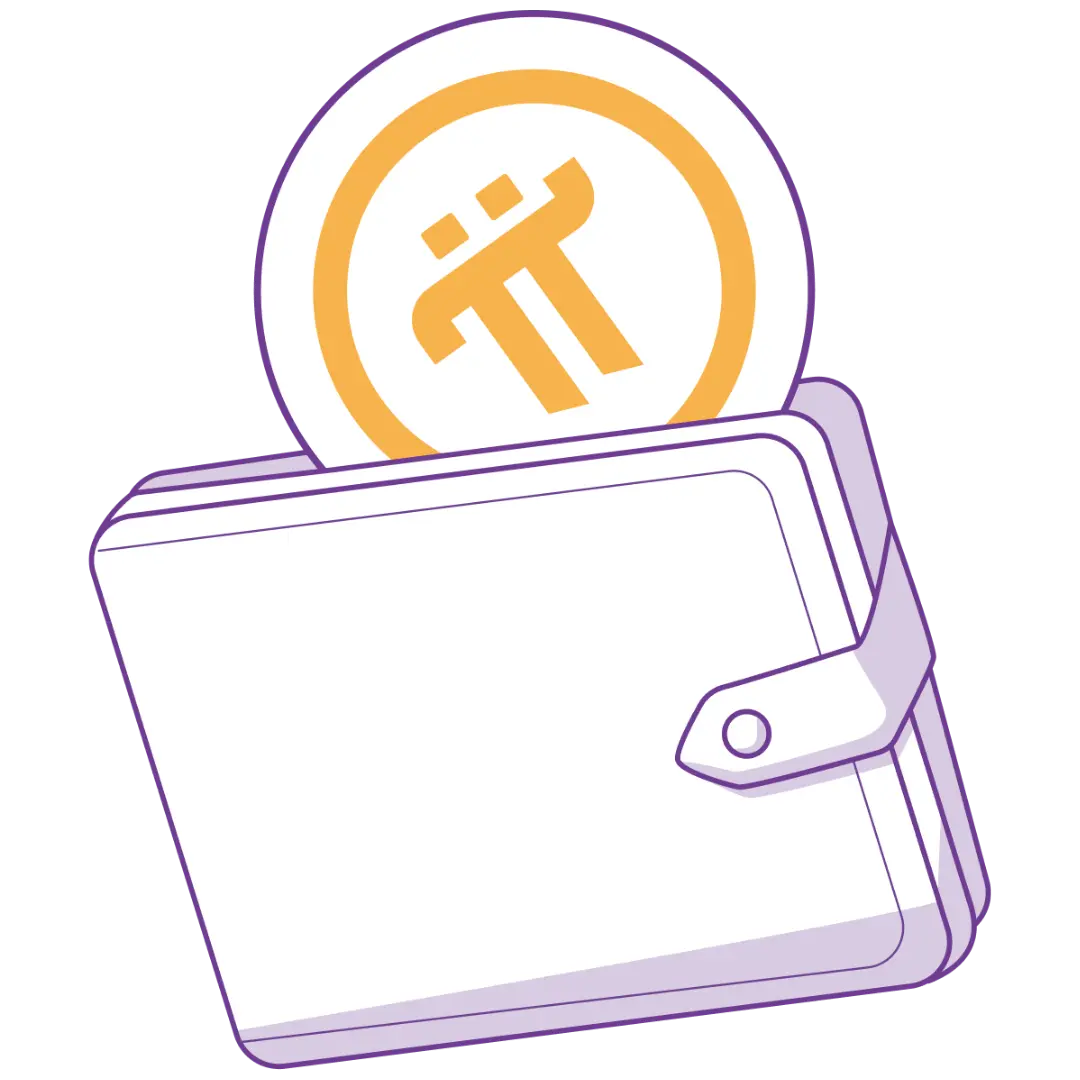
Pi Wallet
The Pi Wallet is a noncustodial cryptocurrency wallet for holding and transferring cryptocurrencies, currently only Pi and Test-Pi, which enables secure and convenient peer-to-peer transactions and integration of a seamless payment experience in Pi Apps.
See Milestones
In line with Pi Network's goal to facilitate a streamlined, decentralized Web3 ecosystem, the Pi Wallet is integrated directly into the Pioneers’ user experience within the Pi Browser app. This allows for easier Pi Payments peer to peer and across Pi Apps and traditional businesses, enabling Pioneers to transact seamlessly on the Pi blockchain. Pi Wallet also supports testing on Pi Testnet and facilitates Pioneers to manage their Pi cryptocurrency migrations and lockups. The Wallet's noncustodial design underscores the network’s commitment to security and decentralized self-sovereignty—and it does require Pioneers to safeguard their unique passphrase since no one else has another copy. KYC verification is required for Mainnet Wallet access, aligning with Pi Network's focus on accountable use of the blockchain by real human beings. Learn More.
History
Testnet Wallets to hold and move Test Pi released on April 1, 2021, enabling testing of transactions on Pi Testnet, particularly for Pi App developers, and helping to kick off the network’s inaugural developer hackathon on Pi2Day, June 28, 2021.
Mainnet Pi Wallets and migration functionalities released on June 28, 2022, following the launch of Enclosed Mainnet on December 28, 2021 and the start of Pioneers’ Mainnet migration.
App-to-Pioneer payment functionality added to the pre-existing Pioneer-to-App payments, enabling two-way transactions between Pioneers and Pi Apps using Pi Wallets.
Two distinct developer wallets developed for Pi Apps: multi-signature wallets (akin to “savings” accounts) for receiving Pi from Pioneers, and standard wallets (similar to “checking” accounts) for sending Pi to Pioneers.
User interface has undergone significant improvements since the initial launch.
Additional Wallet features have been added to support easier payment processes and Pioneers connectivity such as off-chain memos for transactions, list of previously transacted Pioneers, and QR code functionality for simplified payments for local commerce integration.
Pi Wallets have enabled widely reported peer-to-peer Pi transactions of goods and services around the world, inspiring the creation of a systematic Pi Commerce program (work-in-progress).
In Progress
Enhancing the security features of the Wallet within Pi Apps.
Expanding Pi Wallet backend for easier integration into different Pi Apps.
Implementing post-Mainnet migration Pi Lockups to continue supporting a healthy and smooth ecosystem and incentivize long-term engagement with the network while the network is bootstrapping and creating utilities.
Future Pipeline
Improvements to Pi Wallet’s QR Code functionality for simplified payments for local commerce integration.
Integration of Pi Wallet into a phone’s native wallet to facilitate easier access in Pi Commerce.
Implement procedure to refill migration wallet on a timely basis to ensure smooth migration of Pioneers’ Pi balance from the Mining app to the Mainnet blockchain.
BlockExplorer
The Pi Network BlockExplorer enables Pioneers to explore the Pi Mainnet and Testnet blockchains, such as viewing transaction histories.
See Milestones
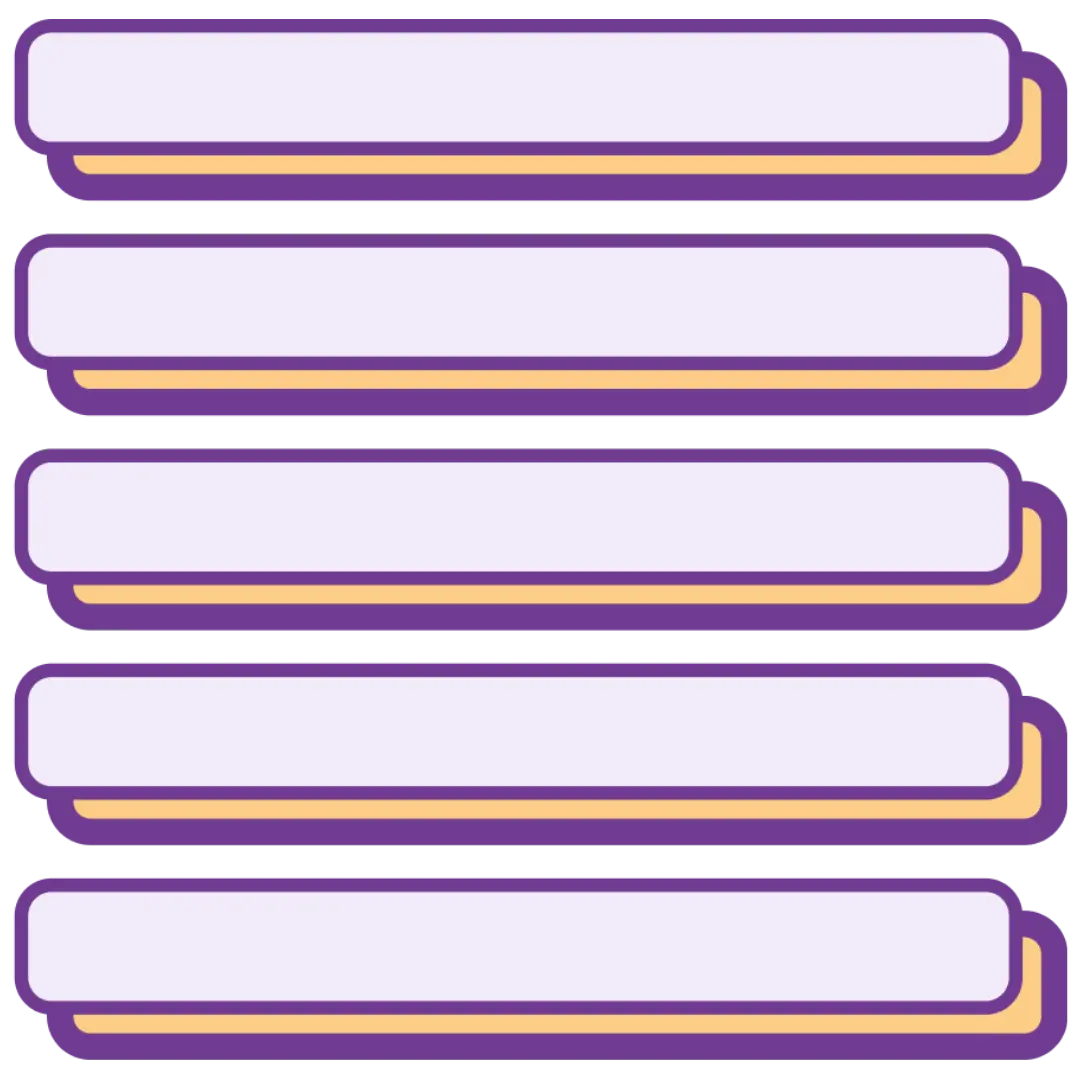
BlockExplorer
The Pi Network BlockExplorer enables Pioneers to explore the Pi Mainnet and Testnet blockchains, such as viewing transaction histories.
See Milestones
The BlockExplorer can be used to find and research past payments, and view status of transactions that occurred on the Pi Blockchain. This allows Pioneers to verify transaction information such as sender’s address, receiver’s address, amounts, fees, and much more. The BlockExplorer is an important tool that allows visibility into the blockchain by anyone with ordinary web tools and showcases the transparency and decentralization of the blockchain technology. See BlockExplorer.
History
Released October 13, 2021 with Testnet blockchain explorable through BlockExplorer. Mainnet blockchain was added to the BlockExplorer in 2022 after the launch of the Enclosed Mainnet.
Released a network statistics section that summarizes insightful network-level data shortly after initial release.
Community
Events
Pi Network events bring the Pi community together to share ideas, collaborate, enhance engagement, and strengthen their shared identity of being Pioneers.
See Milestones

Events
Pi Network events bring the Pi community together to share ideas, collaborate, enhance engagement, and strengthen their shared identity of being Pioneers.
See Milestones
The vision for Pi Network events is to create collaborative spaces that foster collective brainstorming and innovation, supporting the ongoing evolution of the Pi ecosystem, and also to provide shared experience for all community members to interact and engage in order to form the Pi culture and reinforce our identity as Pioneers. Whether it's through hackathons that foster community apps development, the “Pi CoInvention” that democratizes the future direction of the network by incorporating community feedback, or art festivals that celebrate the creative spirit of the Pi community and many more, these events aim to foster a sense of unity, collective growth and shared purpose. Pi Network events not only cultivate a vibrant community but also advance the network's broader goals of decentralization, inclusivity, and real-world utility.
Pioneers, come participate in our events, let us know of your ideas, and give us your feedback! Pi Network has always been driven by the decentralized efforts from Pioneers and the Core Team.
Select Past Events
Pi slogan and T-shirt design creative contest in 2019 when the network reached 100,000 Pioneers.
Celebration of Pi Network crossing 1 million Pioneers worldwide in 2019.
Pi Social Media #Pi2gether frame event to celebrate Pi2Day and the acceleration of ecosystem building in June 2020 where Pioneers added and shared a custom Pi frame to their videos and photos on social media.
#GenerationPi mug giveaway in August 2020 to encourage community brainstorming about utilities in the Pi ecosystem, where Pioneers entered the giveaway by sharing on social media the brands and apps Pioneers want to see on the Pi Apps Platform in the future.
Pi CoInvention in October 2020 that organized a few panels that invited Pioneers globally to discuss the future direction of the network via video submissions, received lots of insightful community input, and amplified sample Pioneer voices.
The first online Hackathon hosted in June 2021 to promote and support Pi Apps development within the Pi developer community worldwide.
Pi2Day 2023 Utility Challenge where Pioneers went through a step-by-step challenge trying out a variety of utilities on the Pi platform.
In Progress
Pi Powered Commerce event to support and promote Pi transactions in local businesses worldwide.
Ongoing monthly hackathons that are designed to support year-round Pi App development efforts.
Future Pipeline coming soon!
#PiHackathons
Pi Hackathons are a key community initiative to educate and mobilize developers to build Pi Apps and enhance utilities on the platform.
See Milestones

#PiHackathons
Pi Hackathons are a key community initiative to educate and mobilize developers to build Pi Apps and enhance utilities on the platform.
See Milestones
Pi Hackathons, online or offline, hosted or participated by Pi Network, provide a continuous influx of Pi Apps into the Pi ecosystem and help grow the developer community of Pi Network. Many hackathons have occurred since the first release of Pi Platform in June 2021, which included the release of Pi SDK, Developer Portal and developer resources. Pi Hackathons are now a regularly scheduled development event where community developers collaborate to build apps on Pi and compete to win a reward of 10,000 Pi. Often a way to start the development of a Pi App, these events attract and bring innovative developers together, facilitating their collaboration and building their familiarity with the resources and benefits of the Pi platform. Hackathon participants then often continue to build their Pi App, feeding into other ecosystem programs such as the Ecosystem Interface of the Pi Browser and the Incubator, as well as receiving ongoing mentorship and support from the Core Team. In this way, #PiHackathons play an essential role in initiating Pi App development and utilities growth, and engaging a wide swath of developers to contribute to Pi's vision for a flourishing Web3 ecosystem.
Developers, submit your app for Core Team review and feedback, and for a chance to be listed in the Ecosystem Interface of the Pi Browser to receive much attention from our community! If you win a hackathon, you will also be featured in the winner-announcement blogpost and/or the Pi Mining app home screen.
History
2021 #buildPi2gether Hackathon was the first Pi Hackathon, with thousands of participants, hundreds of thousands of community reviewers and five winners, marking a significant milestone in bootstrapping community-driven development of Pi utilities.
Sponsored hackathons at three U.S. universities—UC Berkeley, Harvard University, and Cornell University—in October 2022 with participation from six teams .
Sponsored hackathon at the DeveloperWeek conference in the San Francisco Bay Area in February 2023, with participation from 11 teams.
2023 Q1 Hackathon with over 6,700 participants, hundreds of app submissions, and 9 winners, including an overall winner, three runners-up, four theme category winners, and one winner of a VC judging round.
Ongoing monthly #PiHackathon since June 2023, with over 1,500 participants and over 500 app submissions as of September 2023. 10,000 Pi is rewarded for each #PiHackathon winner.
Regular Core Team review and feedback to top teams as well as a pathway into the Ecosystem Interface of the Pi Browser for eligible apps.
In Progress
Update and improve developer resources such as Community Developer guide and onboarding materials for hackathon participants.
Explore thematic one-off hackathons to encourage building of applications to facilitate highly desirable network goals such as Pi Commerce expansion.
Continue ongoing monthly hackathon by evaluating and giving feedback to candidate teams and selecting winners to be announced
Future Pipeline
New forms of community hackathons that bolster the community developers’ strength while supplementing them with their missing components in pursuit of creating more usable and qualified Pi apps for the ecosystem. For example, a design-focused hackathon where community app designers collaborate to build mockups for new Pi Apps under the PiOS license, with the potential to ignite the development of highly engaging apps by other developers.
Participate in some local hackathons in top schools or areas with highly concentrated tech talents.
Developer Ambassador Program
Through the Developer Ambassador Program, Pioneers inspire builders in their network to build Pi Apps and receive Pi rewards when the app reaches a predetermined milestone.
See Milestones
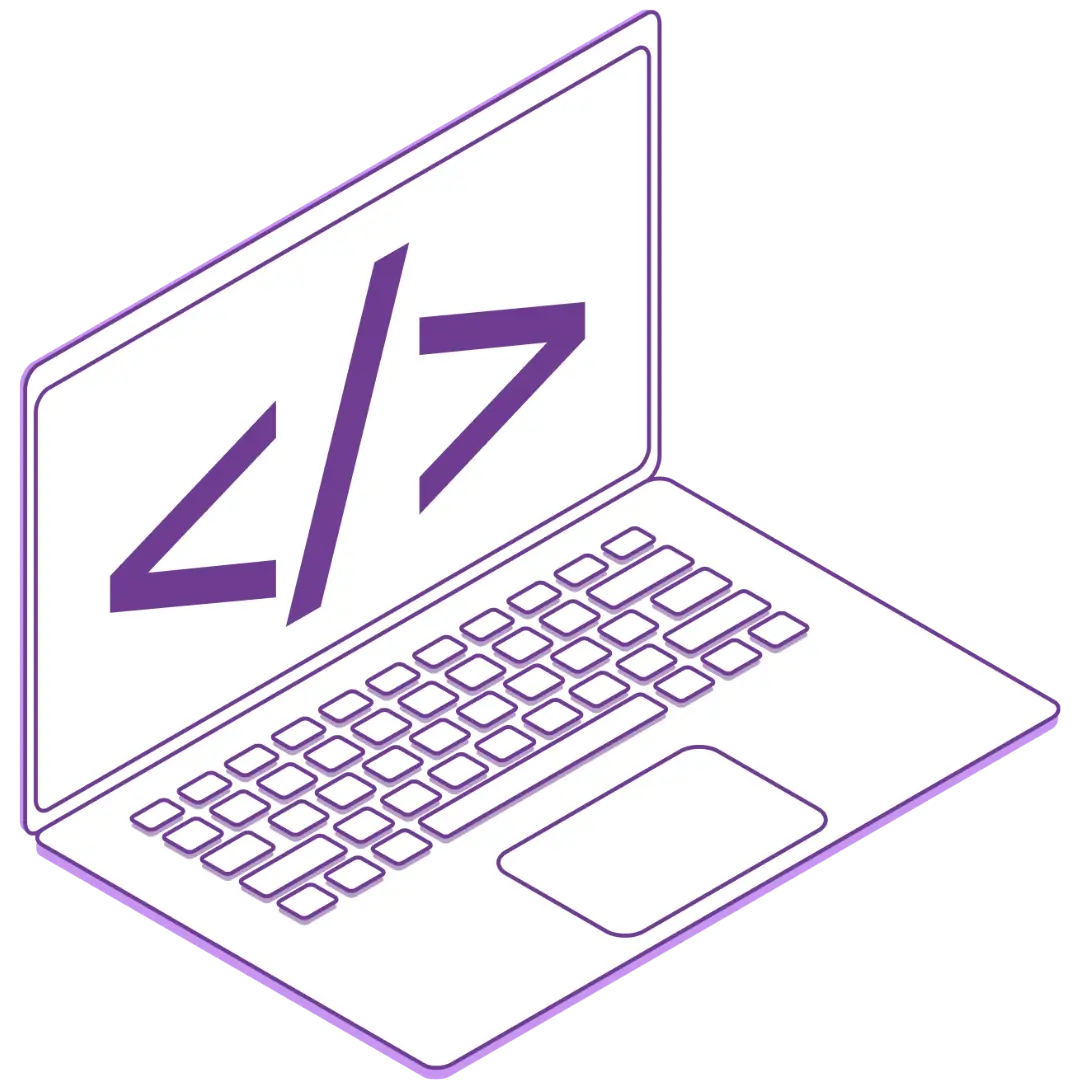
Developer Ambassador Program
Through the Developer Ambassador Program, Pioneers inspire builders in their network to build Pi Apps and receive Pi rewards when the app reaches a predetermined milestone.
See Milestones
The Developer Ambassador program is aimed at activating and relying on community efforts to accelerate the development of Pi Apps and utilities that embody Pi’s vision of a flourishing Web3 ecosystem. Open to all and deeply rooted in community collaboration, the program taps into Pi Network's expansive 55+ million community to engage with and bring in new developers. This program equips Pioneers with necessary content and resources to introduce Pi platform to developers, enroll a new developer to join Pi Network, and in turn, receive 1000 Pi when the developer builds a Mainnet Pi App that is listed in the Ecosystem Interface of the Pi Browser. The developer can build a new Pi App or repurpose an existing consumer-facing app into a Pi App. The program, therefore, propels Pi Network closer to its Open Network goals, all while championing Pioneers to find developers to create Pi Apps that cater to a global Pioneer audience. Learn More .
Pioneers, you can turn your contacts in software development, software engineering, product design, and entrepreneurship into Pi rewards! Represent Pi’s Web3 ecosystem by participating in the Developer Ambassador Program.
History
Program concept initially announced on PiDay, March 14, 2023 and kicked off on Pi2Day, June 28, 2023, with an initial timeline through September 30, 2023, which was later extended to December 31, 2023.
Developer Ambassador dashboard (found in the “Roles” section in the menu on the Pi Mining app) shows Developer Ambassadors the individual developers they have onboarded during the program period, helping to monitor their progress and follow up with them for support and encouragement.
In Progress
Gather feedback from Developer Ambassadors to improve the program and resources available.
Data analysis of current progress of the program such as progress by Developer Ambassadors and their associated developers.
Enhance resources and content available to Developer Ambassadors to help them onboard and support developers such as a new blogpost to facilitate onboarding of new developers onto the Pi platform.
Pi App Incubator
The Incubator program mentors and supports Community Pi App teams in enhancing their Pi Apps, and thereby, utility creation in the network.
See Milestones

Pi App Incubator
The Incubator program mentors and supports Community Pi App teams in enhancing their Pi Apps, and thereby, utility creation in the network.
See Milestones
The Pi App Incubator program supports Community developers in their app development and deployment process to ultimately provide useful services to the Pi community and create utility to the Pi ecosystem. The program provides cost-based grants for documented app development needs and mentors them to improve their app’s user experience, meet the requirements to get their Mainnet app listed in the Ecosystem interface of the Pi Browser, reach more Pioneers, develop a sustainable business model, etc. This is a rigorous and competitive program for App teams that are selected based on current development milestones as well as their demonstrated ability and willingness to significantly improve their app over the course of a 12-week program.
App developers in the Pi community, you can create an innovative and focused use case, and improve your app’s user experience for a chance to join your fellow builders in the second cohort of the Incubator program!
History
Pilot app development cost-based grant program with a Community App team, which was selected based on their past Hackathon success and continued progress and commitment.
Pilot milestone-based grant program for select winners and participants in the College (2022) and DeveloperWeek (2023) hackathons.
Regular one-on-one mentoring sessions with various Community App teams regarding Product, Product design, Game app design, business model, and technical implementations.
Drafted a Product and Design guide consolidating feedback given to various Community App teams.
Selection and kickoff of the first cohort of the Incubator program.
Mentorship program for a select university’s team on building a Pi App.
In Progress
Publication of a Product and Design Guide for all Pi community developers.
Future Pipeline
Program performance assessment following the completion of the first cohort to determine the efficacy of future cohorts for the growth of utilities on the platform, particularly relative to the efficacy of alternative developer programs such as hackathons of various kinds and selective, one-off grants and mentorship opportunities. If the program is deemed viable, successive Incubator cohorts can be launched, with variations based on programmatic learnings and evolving utility needs of the network.
Pi-Powered Commerce Program
The Pi-Powered Commerce program enables Pioneers and local businesses to use Pi in everyday offline and online transactions, boosting its real-world utility.
See Milestones
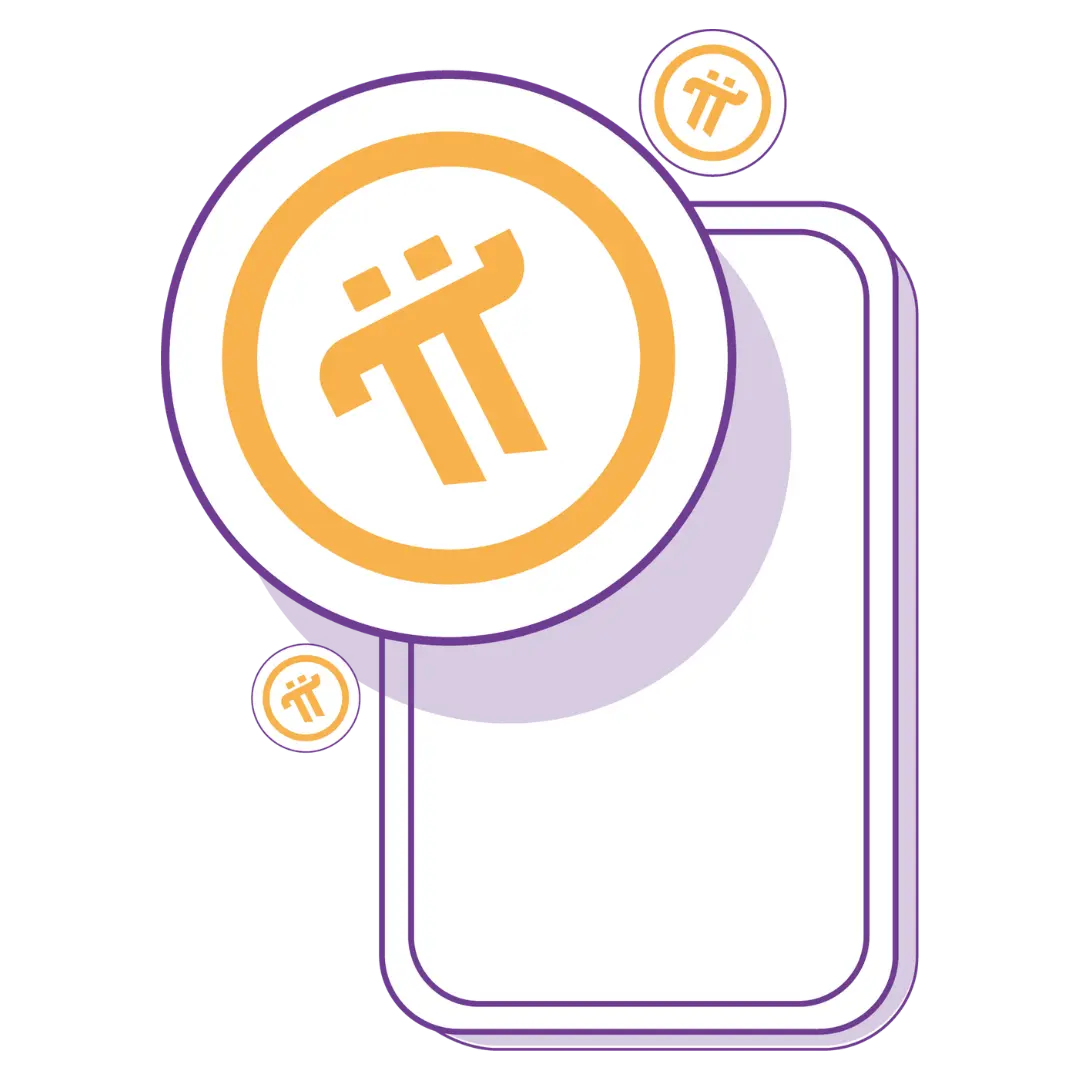
Pi-Powered Commerce Program
The Pi-Powered Commerce program enables Pioneers and local businesses to use Pi in everyday offline and online transactions, boosting its real-world utility.
See Milestones
The Pi-Powered Commerce program is a strategic initiative to enable Pioneers and local businesses to integrate the Pi cryptocurrency in local economies around the world. This use of Pi aligns with the network’s community- and utility-centric vision, and leverages an already decentralized ownership of Pi by over 55 million Pioneers across 230 countries and regions. Even before the program’s launch, it was widely reported that Pioneers had been using Pi for transactions related to goods and services, peer to peer as well as directly with local businesses. Through community surveys and events, the program aims to gather community insights on potential uses of Pi and the best manner in which to enable, support, and promote increased use of Pi globally by providing assistance to Pioneers and local businesses.
History
Pilot In-app transfers (IAT) of mined Pi mobile balance enabled for limited and selected community members (around 200) who were actively contributing to the community and ecosystem goals to help the community learn and explore the types of utilities that Pi could facilitate in December 2019, and discontinued in December 2021.
Program concept to support and encourage local businesses to use Pi initially announced on PiDay, March 14, 2023, followed by Pioneers providing their own input and suggestions regarding the program plan via the Support Portal.
In September 2023, the Pi Core Team invited Pioneers to share their input to specific prompts on anticipated aspects and features related to Pi Commerce. These included: recommended ideas, feature requests, challenges, and previous experiences using Pi in local communities. Within 24 hours of posting this survey on the home screen of the Pi Mining app, the survey received responses from over 80,000 Pioneers eager to help in the development of the program.
Wallet features released to help enhance and encourage the use of Pi in daily transactions, such as the QR Code feature that enables the convenience of peer-to-peer and Pioneer-to-business transactions using Pi both online and offline, transaction memos to add personalized messages to payments, and a wallet contacts list for easy access to people you want to transact with.
In December 2023, a PiFest event ran for a few days, where the Pi Core Team invited merchants integrating Pi cryptocurrency into their transactions to post a “Pay with Pi” flier in their store and Pioneers to discover and share such stores with fellow Pioneers. This event drew over 21,000 responses and participation from 155 countries and regions around the world.
In February 2024, the Pi Core Team hosted a Pi Commerce hackathon to specifically encourage and support community developers building Pi apps that allows Pioneers to search for Pi-powered businesses locally and businesses to offer Pi-based payments, discounts, loyalty, and related programs. The hackathon concluded with two winning apps and two honorable mentions.
In Progress
Community events to celebrate the Pi Commerce program and encourage participation, particularly to encourage continued improvement and community adoption of the Pi apps that were a part of the Pi commerce hackathon in February 2024. The goals of the event are to promote the program so as to further unleash the potential use of Pi in transactions, and to turn Pi’s decentralized ownership into decentralized usage everywhere!
Future Pipeline
Need finding and research on the challenges and potential solutions in Pi integration into local commerce.
Explore further solutions in solving such challenges through technology and community organization, by either guiding and making programs for community developers to build Pi apps to address or providing suggestions and insights for the platform side to implement changes or features.
Potential more Pi commerce- related events.
Improvements to Pi Wallet’s QR Code functionality for simplified payments for local commerce integration.
© 2024 SocialChain Inc. | All rights reserved.
